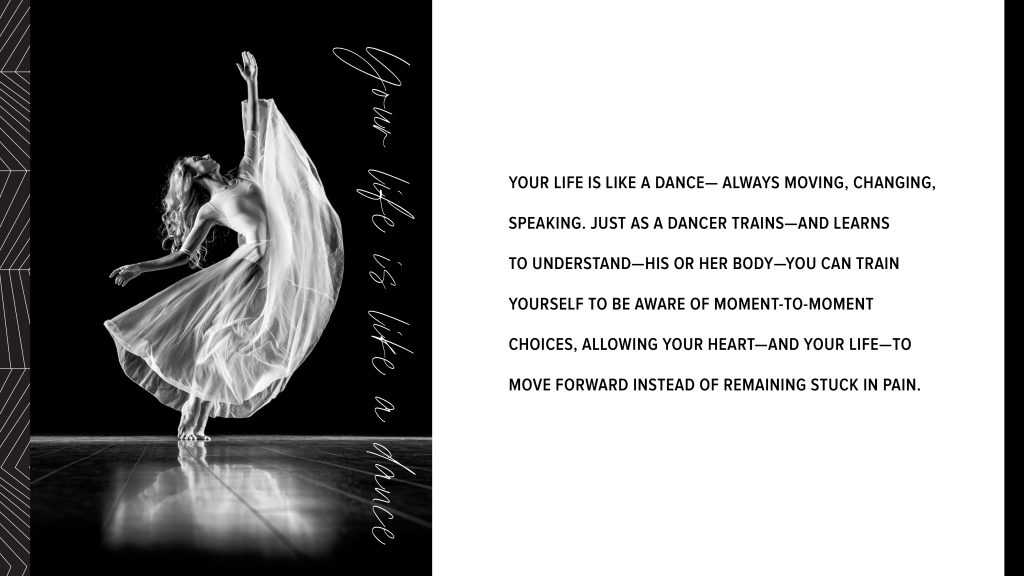Don’t Let the “Grinch” of Trauma Rob You of Joy
Marti Wibbels, MS, LMHC
Like the grinch whose heart was “two sizes too small,” does it seem like you can’t enjoy life at all? From the smells of Thanksgiving to the music of Christmas, trauma memories can yank you from the present to the past in less than 1/12 of a second. Those “ambushes” can make life feel out of control—taking you to a world of panic attacks, overwhelm, shame, grief, sleeplessness, or fear. What can you do when the “most wonderful time of the year” feels anything but that?
1. Be kind to yourself. Simply notice whenever one of your five senses takes you to the pain of loss, betrayal, or other suffering, and immediately tell yourself something like, “Oh, hearing that song makes me think of…..” without either repressing the feeling or condemning yourself for having it. It’s important to begin to feel so you can heal. If you’ve recently lost a loved one, holidays can be especially painful, with reminders of what used to be. It’s important to allow yourself to grieve in a healthy way, not only to feel the sadness but to experience God’s tangible gifts of comfort and hope. Jesus said, “Blessed are those who mourn, for they will be comforted” (Matthew 5:4). After expressing your grief, consciously focus on God, realizing His tender compassion. Jesus understands your sadness, and He can make beauty from life’s fragments. Chapter Nine of Core Healing from Trauma, “Discovering Purpose,” offers practical ideas for discovering your unique purpose.
2. Choose to live in the present. During the holidays, trauma-fueled panic attacks send many to the ER, convinced they’re having heart attacks. If a medical exam confirms it’s anxiety increasing your heart rate and causing the pain, you can take charge of what’s happening in your brain and body. Start by changing your self-talk, saying something like, “A panic attack can last only two to three minutes if I’ll decisively manage it.” Notice where you’re breathing, changing your breaths from shallow to deep. Practice calm/diaphragmatic breathing: To begin, inhale through your nose for three to four seconds, inflating your lungs and breathing so deeply that your belly goes “out.” Then, hold your breath for about two seconds before slowly exhaling through your mouth for four to five seconds, noticing your belly go “in.” To prevent hyperventilation, pause a second or two before taking another breath, and continue repeating this breathing process at a comfortable rate. As you breathe deeply, filling your lungs with life-giving oxygen, you’re also allowing your body to relax. Proverbs 14:30 explains, “A heart at peace brings life to the body,” and that is true! Take a deep breath now, focusing on enjoying this moment. [Since we breathe 24/7, it’s vital to consciously practice deep breathing throughout the day. If you wake up with an intrusive dream, simply breathe to move back into the present.]
3. Many people choose anxiety medication without exploring other options. If you’re already taking medication for anxiety, please don’t stop without medical supervision, since doing so can cause significant side-effects. Although there are times when people need medication to survive, psychiatrist Dr. Daniel Amen explains, “Beware that traditional treatment with anti-anxiety medications can be harmful to the brain. For example, benzodiazepines—including Xanax, Valium, and Ativan—suppress brain activity and can make the brain look toxic (shriveled or low in activity). They have also been found to increase the risk of dementia. Even more alarming is the fact that deaths from overdoses involving benzos quadrupled from 2002 to 2015, according to the National Institute on Drug Abuse. And a 2016 study found that the number of prescriptions being doled out for benzos has jumped by 67%. Now, an estimated 13.5 million American adults are popping these harmful and addictive antianxiety pills.” Instead of allowing a prescription to be your starting point, practice the breathing technique mentioned in #2, above. And you can immediately begin managing disruptive thoughts. Click here to learn how: Overcoming Depression.
4. Listen to music that inspires and encourages you. After the Grinch thought he’d robbed Who-ville of Christmas by taking their gifts, he was astonished to observe “Every Who down in Who-ville, the tall and the small, was singing! Without any presents at all!” Music can help us transform trauma and realize life itself is a gift.

© 2019 Marti Wibbels | website loved on by Agency O

